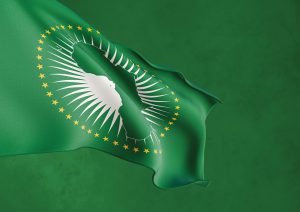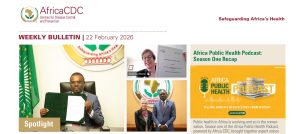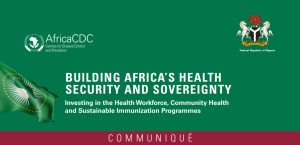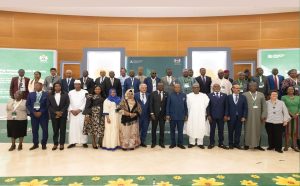Africa CDC’s Bingwa PLUS Y-Health Incubator Programme has awarded its first 15 grants, worth €45,000. These grants will support youth-led, community-focused initiatives that promote innovation, impact, and sustainability in addressing public health, social justice, education, and development challenges by transforming them into actionable public health solutions.
The pitching contest was held from 27 to 30 May in Abuja, Nigeria.
“These grants are designed to enable project teams to launch or scale practical, action-oriented solutions that will be implemented within a short time frame and lay the foundation for long-term change,” said Dr Chrys Promesse Kaniki, Senior Technical Officer for Strategic Programmes and Youth Division Lead at Africa CDC.
Building on the remarkable success of the African Union Bingwa Initiative—launched in April 2022—the incubator programme aims to empower young Africans aged 18–35 to develop scalable, impactful health solutions. The Bingwa PLUS initiative, an extension of the original programme, provides a platform for young innovators to showcase their ideas, access funding, and receive mentorship to turn their visions into reality.
The event brought together 30 shortlisted innovators from an initial pool of 50 pre-selected candidates, who were selected through a rigorous evaluation process based on project potential, community impact, and alignment with Africa CDC’s strategic objectives.
“This event exemplifies the power of youth-led innovation in transforming health landscapes across Africa,” said Dr Kaniki. “By investing in young leaders and their ideas, we are fostering a new generation of health innovators equipped to tackle Africa’s most urgent health challenges.”
The winners were drawn from Botswana, Cameroon, Eswatini, Gambia, Ghana, Namibia, Nigeria, Rwanda, Republic of Congo, South Sudan, Tanzania, Uganda, and Zambia.
The pitches showcased a diverse range of youth-led innovations aimed at tackling pressing public health challenges across Africa. One project focused on analysing and strengthening youth inclusion in global health governance through evidence-based insights and policy recommendations. Another sought to improve timely Hepatitis B birth dose vaccination at Bayanka Community Health Centre in the Gambia by empowering midwives, enhancing their training, and addressing service gaps in underperforming facilities.
In Zambia, a community-led sanitation and hygiene initiative leveraged local youth networks to reduce cholera and other waterborne diseases. The project included school outreach, clean-up campaigns, a public awareness podcast, and media-driven WASH advocacy efforts designed to drive behavioural change at the grassroots level.
Sexual and reproductive health was also a strong theme among several pitches. In Kauxwi, Botswana—an underserved community—youth innovators proposed a peer-led sexual health education programme delivered through interactive workshops and digital tools such as Twine-based games and WhatsApp channels. In Namibia, a three-month campaign used both online and offline platforms to promote youth-led SRHR initiatives. This included gamified web modules, community outreach in schools and universities, and content creation aimed at improving access, literacy, and ownership of sexual and reproductive health information among young people.
Prior to the pitch event, all shortlisted participants completed a six-week, self-paced online training programme, covering six core modules: Health and Youth Leadership in Africa; Programme Ideation and Design; Conceptualisation and Monitoring; Financial and Risk Management; Institutionalisation and Resource Mobilisation; and Communication and Storytelling for Impact. These modules laid the groundwork for participants to refine their ideas and pitch well-structured, scalable solutions with strong public health impact.







